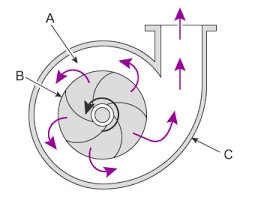Mobile:+86-311-808-126-83
Email:info@ydcastings.com
aluminum alloy casting
Understanding Aluminum Alloy Casting
Aluminum alloy casting is a vital manufacturing process that transforms molten aluminum into various shapes and forms through the use of molds. This technique is widely utilized across numerous industries, including automotive, aerospace, and consumer goods, due to its excellent durability, lightweight properties, and excellent corrosion resistance.
The Importance of Aluminum Alloys
Aluminum alloys are categorized into two primary groups wrought and cast. In casting applications, the most common alloys are the 1xxx series (pure aluminum), 2xxx series (aluminum-copper), 3xxx series (aluminum-manganese), and 6xxx series (aluminum-magnesium-silicon). Each of these alloys offers unique mechanical properties, making them suitable for specific applications. For instance, 6061 aluminum, part of the 6xxx series, is known for its good weldability and has become a popular choice in the construction of lightweight structures.
The Casting Process
The aluminum casting process involves several critical steps, including melting, pouring, and solidification. Initially, aluminum scrap or ingots are melted in a furnace, reaching temperatures around 660°C (1220°F). Once melted, the aluminum can be alloyed with other metals to enhance its properties. After achieving the desired chemical composition, the molten aluminum is poured into a mold.
The molds used in aluminum casting can be made from various materials, including sand, metal, or ceramic, depending on the desired finish and production volume. Sand casting is one of the most common methods, where a sand mold is created, allowing for intricate designs and shapes. Metal casting, or permanent mold casting, uses reusable metallic molds that facilitate better surface finishes and dimensional accuracy.
As the molten aluminum fills the mold, it begins to cool and solidify. This phase is critical as the cooling rate can significantly affect the mechanical properties of the finished product. Controlling the cooling rate helps in minimizing defects such as porosity and enhances the strength of the casting.
aluminum alloy casting

Advantages of Aluminum Castings
The benefits of aluminum alloy casting extend to various performance attributes. One of the primary advantages is weight reduction. Aluminum is significantly lighter than alternatives such as steel, making it an ideal choice for applications where weight savings are crucial, such as in automotive and aerospace components. Additionally, aluminum’s effective thermal and electrical conductivity allows for its use in various heat exchangers and electrical enclosures.
Corrosion resistance is another crucial advantage, as aluminum naturally oxidizes, forming a protective layer that prevents further deterioration. This property makes aluminum castings suitable for outdoor applications and environments where exposure to moisture and chemicals is a concern.
Challenges in Aluminum Casting
Despite the numerous advantages, aluminum casting is not without challenges. One of the most prominent issues is the occurrence of defects, such as porosity, shrinkage, and inclusions. Proper mold design, pouring techniques, and post-casting treatment are essential to mitigate these problems and ensure high-quality products.
Moreover, the cost of aluminum alloy materials can fluctuate based on market demand. Manufacturers must carefully consider their material selection to balance performance needs with cost-effectiveness.
Conclusion
In conclusion, aluminum alloy casting plays a critical role in modern manufacturing, offering a range of benefits from weight savings to enhanced corrosion resistance. Understanding the properties of different alloys, the casting processes involved, and the challenges manufacturers face is essential for optimizing production practices. As industries continue to evolve, the demand for reliable, high-performance aluminum castings will undoubtedly grow, solidifying its importance in the manufacturing landscape.
-
Why Should You Invest in Superior Pump Castings for Your Equipment?NewsJun.09,2025
-
Unlock Performance Potential with Stainless Impellers and Aluminum End CapsNewsJun.09,2025
-
Revolutionize Your Machinery with Superior Cast Iron and Aluminum ComponentsNewsJun.09,2025
-
Revolutionize Fluid Dynamics with Premium Pump ComponentsNewsJun.09,2025
-
Optimizing Industrial Systems with Essential Valve ComponentsNewsJun.09,2025
-
Elevate Grid Efficiency with High-Precision Power CastingsNewsJun.09,2025











